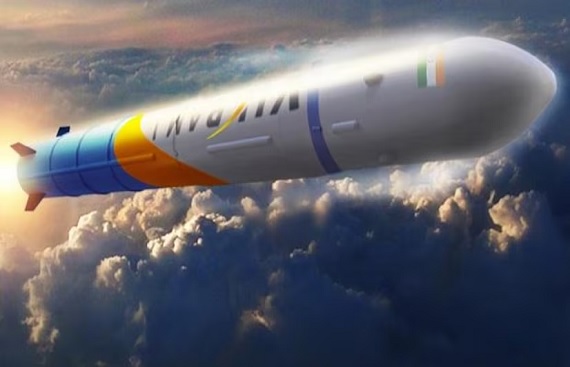Skyroot Successfully Fires Kalam-100 Engine for Vikram-1 Rocket
By
siliconindia | Monday, 07 April 2025, 10:07 IST

India's homegrown private space startup Skyroot Aerospace has reached a significant milestone with the successful static fire test of its Kalam-100 engine, which will propel the third stage of the Vikram-1 rocket. The test demonstrated the engine's maximum vacuum thrust of 100 kN, realized with an operating area ratio of 60, during a burn of more than 102 seconds.
The Kalam-100 engine has a state-of-the-art flex nozzle for accurate thrust vector control, representing a major breakthrough in domestic propulsion technology. This comes after Skyroot's previous successful fixed-nozzle test, further establishing its strength in rocket development.
Engineered with in-house technologies, the test involved the Automatic Launch Computer and flight avionics of Vikram-1, replicating actual flight conditions. More than 150 data channels were tracked using state-of-the-art sensors, providing in-depth insights into engine performance.
The feat highlights the collaborative nature of Skyroot's engineering teams and the backing of strategic partners. Solar Group was critical to the effort, offering casting and test bed support for the engine, illustrating the emerging ecosystem of private donors in India's space industry.
The Vikram-1 rocket is a solid-fuel, three-stage launch vehicle and will carry payloads of 480 kg to 500-km low-inclination orbit. With this test, Skyroot is inching towards becoming one of India's earliest private players to put an orbital rocket into space.
This achievement not only speeds up the country's space goal through private means but also solidifies India's increasing footprint in the international space race. The ingenuity and persistence of Skyroot are creating opportunities for India's future of commercial spaceflight.
Read More News :
Aman Gupta Backs Goyal's Call for Bolder Start-Up Vision
Indian Entrepreneurs Defend Startup Ecosystem After Minister Piyush Goyal's Remarks Spark Debate


.jpg)
.jpg)